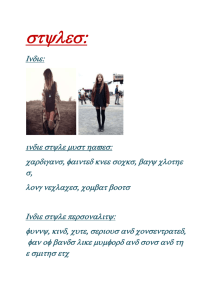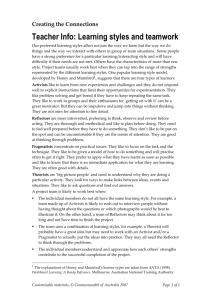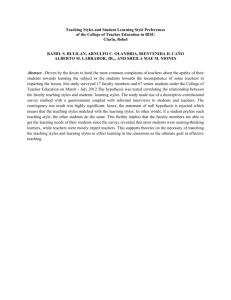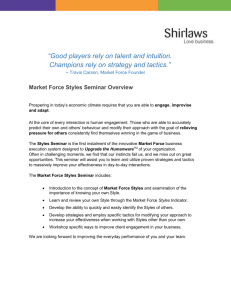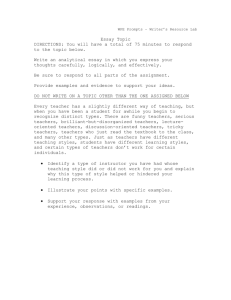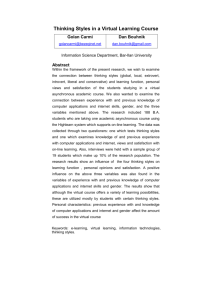Call for Papers: Special Issue of International Journal of Conflict
advertisement
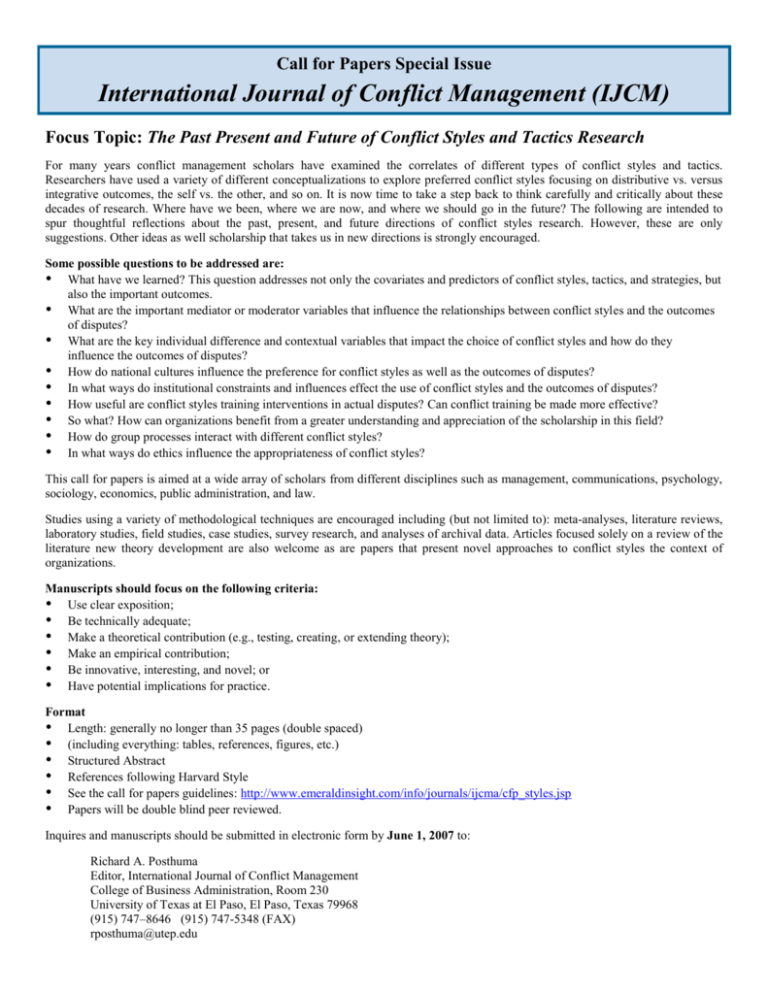
Call for Papers Special Issue International Journal of Conflict Management (IJCM) Focus Topic: The Past Present and Future of Conflict Styles and Tactics Research For many years conflict management scholars have examined the correlates of different types of conflict styles and tactics. Researchers have used a variety of different conceptualizations to explore preferred conflict styles focusing on distributive vs. versus integrative outcomes, the self vs. the other, and so on. It is now time to take a step back to think carefully and critically about these decades of research. Where have we been, where we are now, and where we should go in the future? The following are intended to spur thoughtful reflections about the past, present, and future directions of conflict styles research. However, these are only suggestions. Other ideas as well scholarship that takes us in new directions is strongly encouraged. Some possible questions to be addressed are: What have we learned? This question addresses not only the covariates and predictors of conflict styles, tactics, and strategies, but also the important outcomes. What are the important mediator or moderator variables that influence the relationships between conflict styles and the outcomes of disputes? What are the key individual difference and contextual variables that impact the choice of conflict styles and how do they influence the outcomes of disputes? How do national cultures influence the preference for conflict styles as well as the outcomes of disputes? In what ways do institutional constraints and influences effect the use of conflict styles and the outcomes of disputes? How useful are conflict styles training interventions in actual disputes? Can conflict training be made more effective? So what? How can organizations benefit from a greater understanding and appreciation of the scholarship in this field? How do group processes interact with different conflict styles? In what ways do ethics influence the appropriateness of conflict styles? This call for papers is aimed at a wide array of scholars from different disciplines such as management, communications, psychology, sociology, economics, public administration, and law. Studies using a variety of methodological techniques are encouraged including (but not limited to): meta-analyses, literature reviews, laboratory studies, field studies, case studies, survey research, and analyses of archival data. Articles focused solely on a review of the literature new theory development are also welcome as are papers that present novel approaches to conflict styles the context of organizations. Manuscripts should focus on the following criteria: Use clear exposition; Be technically adequate; Make a theoretical contribution (e.g., testing, creating, or extending theory); Make an empirical contribution; Be innovative, interesting, and novel; or Have potential implications for practice. Format Length: generally no longer than 35 pages (double spaced) (including everything: tables, references, figures, etc.) Structured Abstract References following Harvard Style See the call for papers guidelines: http://www.emeraldinsight.com/info/journals/ijcma/cfp_styles.jsp Papers will be double blind peer reviewed. Inquires and manuscripts should be submitted in electronic form by June 1, 2007 to: Richard A. Posthuma Editor, International Journal of Conflict Management College of Business Administration, Room 230 University of Texas at El Paso, El Paso, Texas 79968 (915) 747–8646 (915) 747-5348 (FAX) rposthuma@utep.edu
